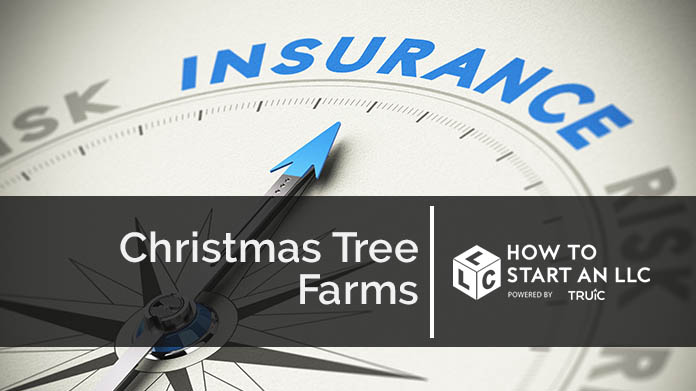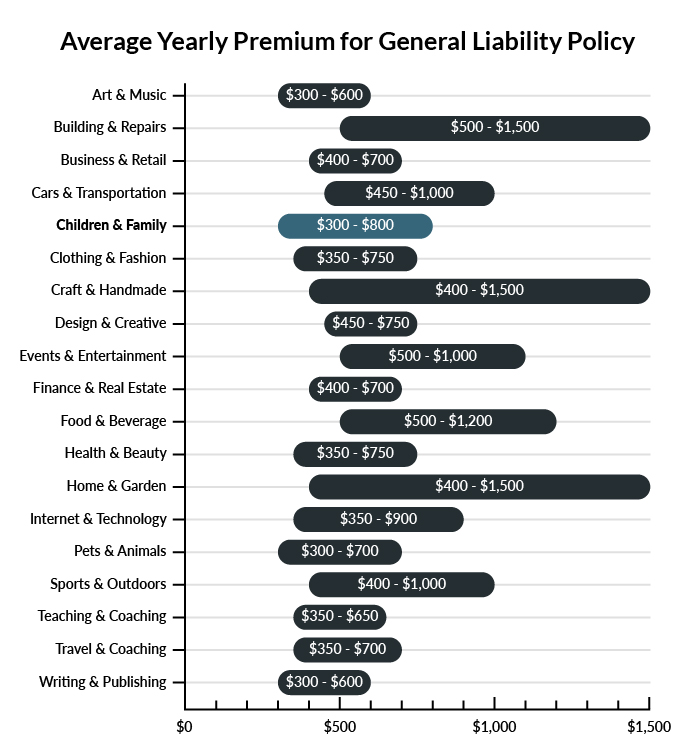Christmas Tree Farm Insurance
Getting insurance for your Christmas tree business is essential.
Christmas tree farms require protection from operational risks that may lead to losses or liability exposure. The hazards covered encompass property damage, third-party claims for non-intentional torts, and bodily injury.
For example, an employee may accidentally injure his hand while cutting down trees. Such circumstances would be covered by insurance. No-fault insurance is generally required by law to cover situations like that.
We’ll help you find the most personalized and affordable coverage for your unique business.

Recommended: Ergo Next Insurance is dedicated to matching small businesses with the right policy at the best price.
Best Insurance for a Christmas Tree Farm
General liability insurance is — generally speaking — one of the most important insurance policies for Christmas tree farms.
Some of the risks general liability insurance covers are:
- Bodily injury
- Property damage
- Medical payments
- Legal defense and judgment
- Personal and advertising injury
However, your Christmas tree farm may face other hazards that are not covered by a general liability policy. Here are three types of insurance to guard against those adverse occurrences:
- Commercial property coverage: This type of insurance will indemnify your business for expenses incurred in repairing damage to the premises that house the business. Damage covered typically includes that caused by fire, flood, vandalism, burglary and theft.
- Commercial auto insurance: This type of insurance is required by law. The policy may be one of two types. A no-fault policy pays compensation without determining blame. An at-fault policy pays only when the owner of the vehicle insured is to blame.
- Business income coverage: Business Income coverage provides protection against certain financial losses that are sustained while the business is unable to operate because of some harmful occurrence.
Business insurance is presently offered by two types of providers:
- Traditional brick and mortar insurers: This category includes some long-established firms, such as the Government Employees Insurance Company (GEICO) and Progressive, that rely on historical data and actuarial science to assess risk.
- Online insurers: Insurtechs like Ergo Next, on the other hand, use more advanced data analytics and machine learning techniques to assess risk. Moreover, they may gather data from a variety of non-traditional sources, such as social media. This allows online insurers to provide better coverage at a lower cost.
Let’s Find the Coverage You Need
The best insurers design exactly the coverage you need at the most affordable price.
Cost of General Liability Insurance
On average, Christmas tree farms in America spend between $300 – $800 per year for $1 million in general liability coverage.
Compare the average cost of general liability insurance for a Christmas tree farm to other professional industries using the graph below.
Several factors will determine the price of your policy. These include your:
- Location
- Deductible
- Number of employees
- Per-occurrence limit
- General aggregate limit
You may be able to acquire general liability insurance at a discounted rate by purchasing it as part of a business owner’s policy (BOP) rather than as a standalone policy.
A BOP is a more comprehensive solution that includes multiple forms of coverage, such as business interruption and property insurance.

Find the Best Rate
Discover the best coverage at the lowest rate in our cheapest business insurance review.
Common Situations That General Liability Insurance May Cover for a Christmas Tree Farm
Example 1: While a family shops for a Christmas tree, one of the children trips and falls as he runs through the trees. The child breaks an arm and his parents ask you to pay for his medical treatment. General liability insurance would cover the child’s medical care.
Example 2: While loading a Christmas tree into a customer’s vehicle, an employee loses control of the tree and it knocks the customer to the ground. The customer breaks an arm and decides to sue your business. General liability insurance would pay for your legal defense costs.
Example 3: One of your competitors sues you for slander. While you disagree with the claim, you want to hire an attorney immediately. General liability insurance would pay for your legal defense costs.
Other Types of Coverage Christmas Tree Farms Need
While general liability is the most important type of insurance to have, there are several other forms of coverage you should be aware of. Below are some of the most common types of coverage:
Commercial Property Insurance
You made a major investment to establish your tree farm. In the event of a fire, theft, or natural disaster, commercial property insurance would cover the cost of repairing or replacing your business-related property. This includes structural damage to your building(s) as well as your trees, equipment, and other business materials.
Product Liability Insurance
While you strive to ensure your Christmas trees make customers happy, there’s always a chance someone might claim your product caused them harm. In the event of a lawsuit, product liability insurance would cover your legal defense costs and any required settlement.
Workers’ Compensation Insurance
If you have any employees, most states will require you to carry workers’ compensation insurance for both part-time and full-time workers. This coverage protects your employees if they become injured at work or fall ill after a work-related accident. It not only covers an employee’s medical bills and lost wages if they need time to recover, but also any disability or death benefits stemming from a work-related accident.
Commercial Umbrella Insurance
While your general liability insurance policy covers most claims, some accidents or lawsuits may be so catastrophic that they threaten to exhaust the limits of your primary coverage. Commercial umbrella insurance protects you from paying out-of-pocket for any legal fees and awarded damages that exceed your primary policy.
Additional Steps To Protect Your Business
Although it’s easy (and essential) to invest in business insurance, it shouldn’t be your only defense.
Here are several things you can do to better protect your Christmas tree farm:
- Use legally robust contracts and other business documents. (We offer free templates for some of the most common legal forms.)
- Set up an LLC or corporation to protect your personal assets. (Visit our step-by-step guides to learn how to form an LLC or corporation in your state.)
- Stay up to date with business licensing.
- Maintain your corporate veil.
Christmas Tree Farm Business Insurance FAQ
Yes, absolutely. You will need to first get a quote from an online business insurance provider like Ergo Next Insurance. Ergo Next allows you to then purchase a policy immediately and your coverage will be active within 48 hours.
A typical business owner’s policy includes general liability, business interruption, and commercial property insurance. However, BOPs are often customizable, so your agent may recommend adding professional liability, commercial auto, or other types of coverage to your package depending on your company’s needs.
“Business insurance” is a generic term used to describe many different types of coverage a business may need. General liability insurance, on the other hand, is a specific type of coverage that business owners need to protect their assets.
Yes. It is essential to buy business insurance before launching your business. Failure to obtain coverage from the very start can put your enterprise in danger, both from unexpected unfavorable events and legal noncompliance.
Legal regulations mandate certain kinds of insurance, like workers’ compensation and commercial auto insurance. Additionally, your business may require other forms of insurance to guard against specific risks, like property damage and customer injuries.
Not necessarily. Certain exceptions may be written directly into your Christmas tree farm insurance policy, and some perils may be entirely uninsurable.
Yes, an LLC is meant to create a legal barrier between your business and your personal assets and credit. If you haven’t formed an LLC yet, use our Form an LLC guide to get started.
An LLC doesn’t protect your business assets from lawsuits and liability– that’s where business insurance comes in. Business insurance helps protect your business from liability and risk.